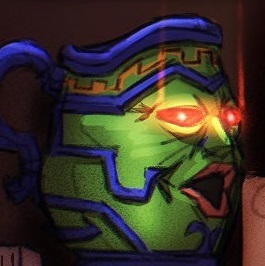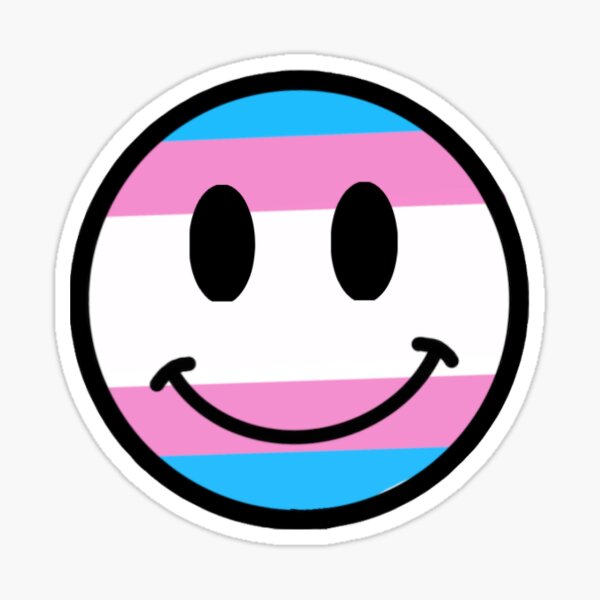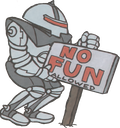Hello comrades, it's time for a new discussion thread for The Will to Change, covering Chapters 8 (Popular Culture: Media Masculinity) and 9 (Healing Male Spirit). Thanks to everyone who participated the last few weeks, I’m looking forward to hearing everyone’s thoughts again. And if you’re just joining the book club this week, welcome!
Putting the thread up early since I won't be able to do so tomorrow. This'll stay up a little longer than usual as well so everyone has the opportunity to share their thoughts during/after the busy holidays.
Chapter 8 briefly surveys popular media depictions of masculinity and how media either reinforces patriarchal roles in its male heroes, or forces them to reject those roles in favor of a healthier sense of self. Chapter 9 discusses healthy vs unhealthy conceptions of intimacy and how men are incapable of true intimacy until they allow themselves to be vulnerable and reject the dominator model of relationships.
If you haven't read the book yet but would like to, its available free on the Internet Archive in text form, as well as an audiobook on Youtube with content warnings at the start of each chapter, courtesy of the Anarchist Audio Library, and as an audiobook on our very own TankieTube! (note: the YT version is missing the Preface but the Tankietube version has it)
As always let me know if you'd like to be added to the ping list!
Our FINAL discussion thread will be on Chapters 10 (Reclaiming Male Integrity), 11 (Loving Men), and the book as a whole, beginning around New Years Day
Gonna post the last discussion thread on Thursday, Jan 2nd so - two day reminder!
@Farvana@lemmygrad.ml @FactuallyUnscrupulou@hexbear.net @Rojo27@hexbear.net @hotcouchguy@hexbear.net @ObamaSama@hexbear.net @frauddogg@hexbear.net @whatnots@hexbear.net @CaliforniaSpectre@hexbear.net @wtypstanaccount04@hexbear.net @Lalutacontinua@hexbear.net @NewOldGuard@hexbear.net @Volcatile@hexbear.net @Sulvor@hexbear.net @sewer_rat_420@hexbear.net @Frank@hexbear.net @Chronicon@hexbear.net @PM_ME_YOUR_FOUCAULTS@hexbear.net @Red_Sunshine_Over_Florida@hexbear.net @Melonius@hexbear.net @ped_xing@hexbear.net @comrade_pibb@hexbear.net @woodenghost@hexbear.net @peppersky@hexbear.net @Cowbee@hexbear.net @MaoTheLawn@hexbear.net @Lemmygradwontallowme@hexbear.net @bdazman@hexbear.net @Real_User@hexbear.net @LGOrcStreetSamurai@hexbear.net @real@hexbear.net @OgdenTO@hexbear.net @RedWizard@hexbear.net @PaX@hexbear.net @DerRedMax@hexbear.net @PKMKII@hexbear.net @PurrLure@hexbear.net @TheLepidopterists@hexbear.net @courier8377@hexbear.net @Seasonal_Peace@hexbear.net @FumpyAer@hexbear.net @Latework@hexbear.net @BrezhnevsEyebrows@hexbear.net @Esoteir@hexbear.net @Cloudx189@hexbear.net @carpoftruth@hexbear.net @BobDole@hexbear.net @vovchik_ilich@hexbear.net @NotThatKindOfFedPosting@hexbear.net @HexaSnoot@hexbear.net @sempersigh@hexbear.net @Barabas@hexbear.net @dumples@midwest.social @PerryGirl@hexbear.net
Chapter 8 is surprisingly short but reading her examples of how patriarchy is portrayed in the media reminded me of a ton of other works where the reactionary masculine ideal is just presented as default and normal without even a shred of analysis. The dominator model and the idea that men have to assert their will on the world through violence is everywhere in media. Look at capeshit movies and how they’ve so thoroughly diffused into the cultural zeitgeist by always showing the heroes (usually white cishet men) beating up and shooting the “bad guys” and how it's so heroic and badass and masculine. We even get plenty of racism in there too, like in the first Iron Man movie where the chiseled playboy weapons dealing white man gets captured by those mean evil Arab terrorists, then shoots his way out, and later on comes back to kill more of them because reasons. This shit is everywhere man.
I’ve been watching The Sopranos for the first time recently and let me tell ya on top of being a fantastic show in its own right it’s been very fucking interesting to watch alongside reading this book. Everything hooks describes about patriarchal masculinity is on full display in that show, the writers clearly understand patriarchy and how it functions extremely well. Some of my favorite scenes are with Tony at his therapist’s office, slowly and painfully working through his feelings and several times getting right to the cusp of dealing with his underlying trauma before saying “fuck this, bye” and refusing to do the work. And so the cycle of destructive patriarchal rage continues and everyone around him suffers and oftentimes dies for it. I’m only through 4 seasons so far and I’m very curious to see if he or any of the other murderous scumbags in the cast end up genuinely changed for the better by the end. I’d love to discuss Sopranos further with people, just pls no spoilers for seasons 5 and 6.
Chapter 9’s discussion of what true intimacy looks like has me thinking a lot about my own conceptions, past and present, of what it means, especially in romantic relationships. I wasn’t perfect about being vulnerable in past relationships but I found it much easier once I got to know the women I was involved with reasonably well. But even then, there was still so much of my internal world that I just never even got close to expressing, so much vulnerability that felt like too much to share even with an intimate partner. This passage hit me hard:
Before most men can be intimate with others, they have to be intimate with themselves. They have to learn to feel and to be aware of their feelings. Men who mask feelings or suppress them simply do not want to feel the pain. Since emotional pain is the feeling that most males have covered up, numbed out, or closed off, the journey back to feeling is frequently through the portal of suffering. Much male rage covers up this place of suffering: this is the well-kept secret. Often when a female gets close to male pain, penetrating the male mask to see the emotional vulnerability beneath, she becomes a target for the rage.
Doing the work to engage with the deepest most repressed feelings is just that, work. It’s suffering, and that terrifies me. I spend so much of my time being lazy and sitting in a chair just trying to avoid doing real, difficult work, both physical and emotional. It takes real courage to undo patriarchal conditioning and actually CHANGE, but I want to do it, I NEED to do it, even if its hard, even if its painful as fuck.
As a final note, using the Dalai Lama as an example of “healthy masculinity” is cringe, I assume she simply wasn’t aware of the history of Tibet and the Lamas and their literal feudal serfdom. But her broader point about spirituality and how the concept of the soul is neglected in modern society is really insightful. The goal of living should be to actually live and experience and feel, not just surviving and coasting until you die. But as with patriarchy as a whole, I don’t think that’s fully possible until capitalism is completely dismantled.
As a final note, using the Dalai Lama as an example of “healthy masculinity” is cringe, I assume she simply wasn’t aware of the history of Tibet and the Lamas and their literal feudal serfdom.
Well that, and him being a pedo when he tried to coerce a kid to suck his tongue on live televison.
Sending the pings now since I won't be able to do so tomorrow. No worries if you aren't caught up yet, its Christmas, the thread will remain up longer than usual to give people time to share their thoughts

@Farvana@lemmygrad.ml @FactuallyUnscrupulou@hexbear.net @Rojo27@hexbear.net @hotcouchguy@hexbear.net @ObamaSama@hexbear.net @frauddogg@hexbear.net @whatnots@hexbear.net @CaliforniaSpectre@hexbear.net @wtypstanaccount04@hexbear.net @Lalutacontinua@hexbear.net @NewOldGuard@hexbear.net @Volcatile@hexbear.net @Sulvor@hexbear.net @sewer_rat_420@hexbear.net @Frank@hexbear.net @Chronicon@hexbear.net @PM_ME_YOUR_FOUCAULTS@hexbear.net @Red_Sunshine_Over_Florida@hexbear.net @Melonius@hexbear.net @ped_xing@hexbear.net @comrade_pibb@hexbear.net @woodenghost@hexbear.net @peppersky@hexbear.net @Cowbee@hexbear.net @MaoTheLawn@hexbear.net @Lemmygradwontallowme@hexbear.net @bdazman@hexbear.net @Real_User@hexbear.net @LGOrcStreetSamurai@hexbear.net @real@hexbear.net @OgdenTO@hexbear.net @RedWizard@hexbear.net @PaX@hexbear.net @DerRedMax@hexbear.net @PKMKII@hexbear.net @PurrLure@hexbear.net @TheLepidopterists@hexbear.net @courier8377@hexbear.net @Seasonal_Peace@hexbear.net @FumpyAer@hexbear.net @Latework@hexbear.net @BrezhnevsEyebrows@hexbear.net @Esoteir@hexbear.net @Cloudx189@hexbear.net @carpoftruth@hexbear.net @BobDole@hexbear.net @vovchik_ilich@hexbear.net @NotThatKindOfFedPosting@hexbear.net @HexaSnoot@hexbear.net @sempersigh@hexbear.net @Barabas@hexbear.net @dumples@midwest.social @PerryGirl@hexbear.net
The pain is a good thing. The suffering of passage is a good thing. Pain is a clarifying agent, if you allow yourself to feel it out, and to let it carve its course as gravity would channel water down a hill.
I really needed to hear this. The discomfort and suffering of facing my most difficult emotions and worst impulses isn't something I should run from. It's not only productive and necessary, but it's genuinely GOOD for me in the long run. The idea of embracing the suffering and even welcoming it is fuckin hard for me to accept, but if I want to grow and move forward with my life that's the way out.
Never apologize for being late, your insights are always incredibly valuable and I appreciate you being here

Lot of great stuff in Chapter 8. Not totally sold on all of her cultural analysis (Is The Matrix the movie we'd pick as an example of valorizing white male patriarchal violence?), but the stuff about how the most retrograde misogyny and violence is projected on to racialized others is spot on. I'm thinking in particular of the way that Israel's genocidal violence has been justified with reference to the evil Islamist hatred of women and queers. The part about the Hillside Strangler is also very interesting. I'm currently working on a research project about sexual assault with my students (a topic they chose by vote), and one of the questions that came up is what the link between mental illness and sexual assault is. There's a pretty common attitude that sexual assault is such abberrant behavior that someone who commits it is almost definitionally mentally ill, which as hooks points out erases the misogynistic/patriarchal character of the crime.
Is The Matrix the movie we'd pick as an example of valorizing white male patriarchal violence?
Yeah, that made me raise an eyebrow as well. Even leaving out the entire trans subtext, it's still a bunch of multi-racial, strongly queer and kink coded outcasts of various genders who exclusively fight cops and feds that are all a carbon copy of the same white dude and are agents of an exploitative system the outcasts want to overthrow. Is it violent? Yeah, doing backflips while dual-wielding SMGs is definitely one form of violence, but it's revolutionary violence against a system of patriarchal white supremacist imperialist capitalist dominance and it's one of the incredibly rare cases in Hollywood where revolutionaries are unambiguously the good guys instead of being shown as irresponsible mass murderers.
OTOH the point of these movies somehow went over many peoples' heads, just look at what they made of the red pill. We have an entire generation of misogynists who use 0,625mg Premarin pills as their metaphor for tying patriarchal masculinity to their ankle like a millstone. People get The Matrix wrong a lot.
I wonder if its inclusion was because it was the action movie of its day that advertising and other similar movies had to address, which is lazy but obviously not an uncommon viewpoint at the time (a decade earlier the example would have been Die Hard, a much more straight example).
I mean, i'm old enough to remember when the first movie came out, the impact it had on pop culture back then was huge. And that wasn't about any of its many subtexts, it was about the aesthetics and the fight choreography. Matrix tought Hollywood a new way of larger than life violence. It redefined how action heroes and action heroines look, dress and move, and how they punch people. From a 2004 perspective, i absolutely get why she includes it in that list. It's just funny how that has aged.
From a 2004 perspective, i absolutely get why she includes it in that list. It's just funny how that has aged.
I think the time is a large part of why she may have included it. Can't forget that it was one of the things being blamed by the MSM for the Colombine shooting. And at a surface level I can kinda see why she might have viewed it in the same way. Like for all the diversity and queerness that it had you still had a seemingly cis hetero white man as the savior figure (he's The One). I don't know if she ever watched before or after this book, but I would think she'd change her mind about it given what we know now.
A bit late due to the holidays, but here are my thoughts having just read chapters 8 and 9.
Chapter 8 was very eye-opening, especially with the recontextualization of "heroic" figures like the Hulk transforming into uncontrollable rage as a distinct non-white alter-ego, before turning back into a timid white man. This is something I hadn't considered before, but that just goes to show the value in reading this book for me personally, it helps me analyze aspects of society I had overlooked before and helps me cut to the truth of the sinister side of pop culture.
Chapter 9 again shows Hooks' empathy for healthy masculinity and how because of patriarchy, parents can often repeat this tragic cycle. Hooks very frequently reinforces the necessity of rejecting the dominator model while emphasizing that men are not inherently evil, that it's the patriarchy that has self-reinforcing measures that tie into the dominant mode of production. What this results in is a clear call to action in fostering healthy parental roles and developing positive relationships built not on demonizing vulnerability, but encouraging it and appreciating the real pain and emotional experience of men.
We have one more week to go, but I've thoroughly enjoyed this reading circle and hope to join the next one, whenever that may be!
I've thoroughly enjoyed this reading circle and hope to join the next one, whenever that may be!
I'm planning to host another right after this one, haven't settled on a book yet though. I've been considering Caliban and the Witch but I'm open to any suggestions!
Caliban was extremely popular a few years ago. My understanding is that so far as history goes, it is built on foundation of error (working mirror). I don't know if there is any way to address that to avoid implanting a totally wrong view of history.
It's too bad, because economically it makes total sense. It might just have been too ambitious to definitely locate the phenomenon in time and space(in European middle ages). It probably took place then to some limited degree quantitatively, but the qualitative change came later and closer to modern times.
I'm still convinced by the core economic idea, I just think about it happening mostly after the enclosure of the commons: The division between paid productive labor and unpaid reproductive work is useful for capital in dividing the working class and providing an initial push for the circulation of capital similar to the enclosure of the commons and colonialism. But it also creates a contradiction. And while this is not the first origin of patriarchy, it determines the form that patriarchy takes under capitalism.
1.) About the dividing the working class part: I imagine male workers, who were driven from their land and whos commons were confiscated, who had to move to the cities work nothing but their ability to work, who still remember the ability to live off the land first and only then surrender part of the harvest as surplus. They are made complicit in their own exploitation by the promise, that, when they come home from the factories and mines, at least they are the absolute patriarchal ruler of the household, served by women and children. The newly doubly free worker might even have asked: "But how am I ever going to marry, if I have nothing to my name? Which woman, or her family, would accept me?". And the new version of patriarchy answered:"Don't worry, for they will have even less than you. Without wages or land or commons they will depend on you and be forced to serve you".
But most of this probably took place after the middle ages during industrialization. If one really wants to find the early beginnings of this in history, I think it would be worthwhile to look at medieval Italian city states and later the Dutch trade and finance empire, like Giovanni Arrighi does in "the long twentieth century", except with a feminist lense.
2.) About the part on an initial push for the economy: This is tricky to locate historically without extensive economic data, because there is a dialectic at play here. Depending on the development of the productive capacities, class conciseness and the rate of profit, it can be advantageous for capital to have women and children work for wages in factories or for free at home. That's why capitals approach shifted multiple times over history and the corresponding ideology shifted with it. It's roughly similar to how both outsourcing and inhousing can be advantageous for companies, both mergers and splits, depending on circumstances.
In the same way, women and children where in some places put to work first in factories, because they were easier to exploit than men. Later they were told to stay at home when men were integrated into the work force and unpaid reproductive labor contributed indirectly to profits, as long as profits were high and margins large. Then in our times, they were told to get a job and shoulder the double burden of productive and reproductive work, because the rate of profit fell fast enough and other possibilities to expand the circulation of capital were exhausted. And now this helps to expand the mass of capital by enlarging the workforce and even keep up profits too by keeping wages low. Both became necessary under circumstances of a falling rate of profit and smaller margins and fewer markets left for capitalism to expand too.
All this complicates matters and some (not all) of the critique against Federici might even come from misunderstanding dialectics, where people assume cause and effect are always linear and always point in the same direction, disregarding the totality. Like in the linked post, where the author claims that some portion of women marrying late and working in cities at some point in time disproves the core of Federicis thesis. It doesn't from an economic perspective, but I get why it can be disappointing for historians.
A Reddit link was detected in your comment. Here are links to the same location on alternative frontends that protect your privacy.
 ·9 days ago
·9 days agoI've been thinking, if there went weren't good epubs of the books that I should make one, might help me actually get some work done.
I'd be down for that! I don't have any suggestions, personally, that's why I want to participate, haha.





